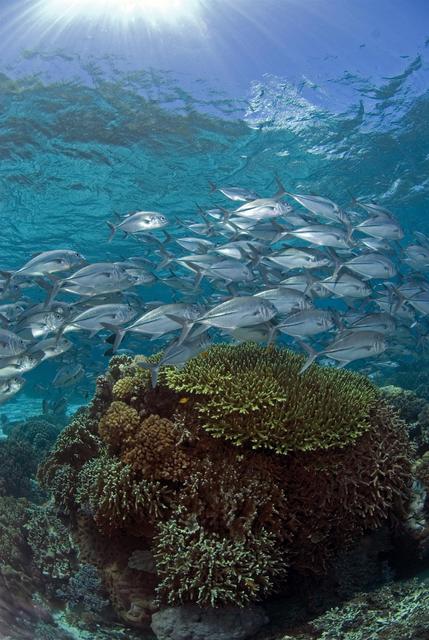Our Pacific Political Advisor Seni Nabou reports back from the first few days of meetings at the UN’s Convention for Biological Diversity (CBD), in Nagoya, Japan.

As a Pacific Islander, attending these big world conferences can be overwhelming. The sheer size, grandeur, pomp, ceremony and alien language (diplo-speak) are enough to cower any sane individual into a passenger seat role.
That is not so for the Pacific Island parties to the CBD who are here to push that our Pacific Biodiversity—the most valuable commodity that has for generations sustained us—is protected expeditiously and effectively.
Greenpeace is a partner along with the South Pacific Regional Environment Programme (SPREP), the Secretariat of the Pacific Community (SPC), IUCN, WCS, WWF and the Environmental Defenders Office—all here to support our Pacific Voyagers in these negotiations. And our Pacific Voyagers are raring to go. And ready to defend their biodiversity.
Regional Solidarity is clearly an inspiration of this Pacific Voyaging experience and so far, even as early as Day 2 of the COP the Pacific Voyagers are stamping out their ground. This is happening on the issues of Marine and Coastal Biodiversity, Protected Area’s, the Strategic Plan, Access & Benefit Sharing and Funding.
There are four pockets of international waters that flank more than a dozen Pacific island countries and that have been already regulated as off limits to purse-seine fishing by eight island countries: Federated States of Micronesia, Kiribati, Marshall Islands, Nauru, Palau, Papua New Guinea, Solomon Islands and Tuvalu.
Large ocean states of the Pacific urgently require protection, as it is integral to the lives of Pacific Islanders who are dependent on it. It is critical that our oceans are protected so that we maintain a sustainable tuna fishing industry, help alleviate the impacts of climate change and create a better future for us, and our future generations.
Governments committed to significantly reduce biodiversity loss by 2010 and they have failed. The people of the Pacific who are dependent on healthy oceans and forests for survival need solutions, not another political failure. This meeting in Nagoya must produce the solutions to enable our planet to sustain future generations. Time is running out. The Pacific, our Planet and our children need more than empty promises.
Greenpeace wants an agreement where there is a strong CBD Strategic Plan which ensures there is a creation of a global network of marine reserves, an adoption of a legally-binding protocol on Access and Benefit Sharing (ABS) that that takes into account indigenous and local rights and which have strong compliance mechanisms.
A significant mobilisation of new and additional funds are also absolutely necessary in order to finance biodiversity conservation.
If our planet is to sustain life on earth in the future and be rescued from the brink of environmental destruction, we need action by governments to protect our oceans and forests and to halt biodiversity loss.
Continued inaction is not an option.

